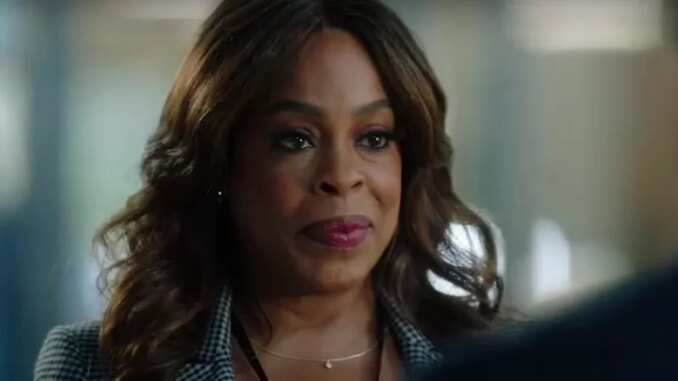
The Blue Line Blink: Why "Training Day" Deserved More Than One Season
Television, in its sprawling and ever-evolving landscape, is littered with casualties: shows that sparkled brightly, only to be extinguished before they truly ignited. Sometimes, these cancellations are understandable, victims of poor writing, lackluster performances, or simply a lack of audience appeal. But then there are the shows that, despite their flaws and premature demise, held a surprising allure, offering a compelling narrative that deserved a longer life. CBS's "Training Day," a short-lived series inspired by the iconic film, falls firmly into this latter category. Despite its single, 13-episode season, it offered a gritty, morally ambiguous exploration of law enforcement that, while not perfect, was surprisingly worth watching.
The premise itself was fraught with peril: re-imagining Antoine Fuqua's masterpiece without Denzel Washington's Oscar-winning performance was a daunting task. The series introduced us to Kyle Craig (Justin Cornwell), an idealistic, rookie cop partnered with Frank Rourke (Bill Paxton), a veteran LAPD detective operating in a morally gray area. Rourke, unlike Washington's Alonzo Harris, was less overtly villainous. He was a man who believed the ends justified the means, a seasoned officer hardened by the brutality of the streets, willing to bend the rules to protect his city. This nuanced portrayal of Rourke, expertly delivered by Paxton in one of his final roles, was the show's greatest strength. He wasn't simply evil; he was pragmatic, deeply flawed, and, at times, even sympathetic. Paxton injected a world-weary gravitas into the character, making him a compelling, if not entirely likeable, anti-hero.
The success of "Training Day" lay in its willingness to delve into the complexities of police work. It didn't shy away from depicting the blurred lines between right and wrong, the compromises officers often make, and the ethical dilemmas they face on a daily basis. While Kyle initially struggles with Rourke's methods, the series subtly explores the corrosive nature of the job. He begins to question his own black-and-white morality as he witnesses the limitations of the law and the effectiveness of Rourke's unorthodox tactics. This internal conflict, portrayed with commendable subtlety by Cornwell, formed the emotional core of the show.
Beyond the central dynamic, "Training Day" benefited from a compelling supporting cast and intriguing storylines. The revolving door of cases, from drug busts to gang warfare, offered glimpses into the underbelly of Los Angeles, providing a stark contrast to the sun-drenched facade often portrayed in Hollywood. The series also explored the personal lives of its characters, revealing their vulnerabilities and motivations. We see Rourke grappling with his own demons, haunted by past mistakes, and struggling to reconcile his actions with his conscience. This depth of characterization, though sometimes uneven, elevated the show beyond a simple procedural.
However, "Training Day" was not without its shortcomings. The writing occasionally felt predictable, relying on familiar tropes of the police drama genre. Certain storylines felt underdeveloped, leaving the audience wanting more. Furthermore, the shadow of the original film loomed large, making it difficult for the series to fully establish its own identity. Yet, despite these flaws, "Training Day" managed to create a unique atmosphere, a gritty and morally ambiguous world where the line between justice and corruption was constantly shifting.
Ultimately, "Training Day" was a show that demonstrated promise, a series that showed potential for growth. While its cancellation, tragically accelerated by Bill Paxton's untimely death, was understandable, it was also a loss for viewers seeking a more nuanced and realistic portrayal of law enforcement. The show offered a refreshing take on the police procedural, one that embraced moral complexity and challenged conventional notions of heroism. In the crowded landscape of television, "Training Day" carved out a small, but memorable, niche. It was a rookie series, short-lived, and flawed, but surprisingly worth watching, leaving behind a lingering question: what could have been? Perhaps, in another reality, Rourke and Craig would still be walking the beat, blurring the lines and forcing us to confront the difficult realities of the job. And that, perhaps, is the most compelling legacy of this short-lived, yet surprisingly potent, series.